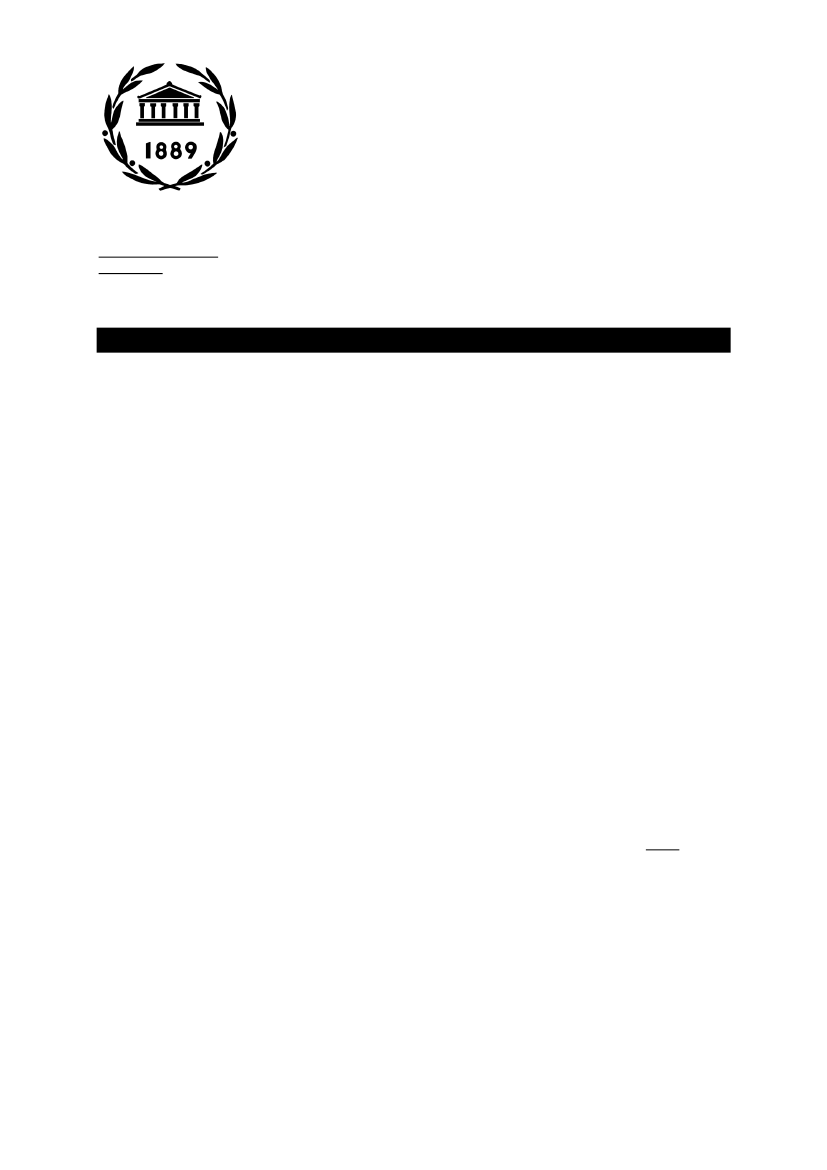Udenrigsudvalget 2013-14
URU Alm.del Bilag 28
Offentligt
INTER-PARLIAMENTARY UNIONCHEMIN DU POMMIER
5
1218 LE GRAND-SACONNEX / GENEVA (SWITZERLAND)TELEPHONE+ 41 22 - 919 41 50 -FAX+41 22 - 919 41 60 -E-MAIL[email protected]
Governing CouncilItem 12(b)
CL/192/12(b)-R.1Quito, 27 March 2013
COMMITTEE ON THE HUMAN RIGHTS OF PARLIAMENTARIANSREPORT OF THE COMMITTEE’S DELEGATION ON ITS MISSION TO THE MALDIVES19-22 November 2012CASE No. MLD/16 - MARIYA DIDICASE No. MLD/28 - AHMED EASACASE No. MLD/29 - EVA ABDULLACASE No. MLD/30 - MOOSA MANIKCASE No. MLD/31 - IBRAHIM RASHEEDCASE No. MLD/32 - MOHAMED SHIFAZCASE No. MLD/33 - IMTHIYAZ FAHMYCASE No. MLD/34 - MOHAMED GASAMCASE No. MLD/35 - AHMED RASHEEDCASE No. MLD/36 - MOHAMED RASHEEDCASE No. MLD/37 - ALI RIZACASE No. MLD/38 - HAMID ABDUL GHAFOORCASE No. MLD/39 - ILYAS LABEEBCASE No. MLD/40 - RUGIYYA MOHAMEDCASE No. MLD/41 - MOHAMED THORIQCASE No. MLD/42 - MOHAMED ASLAMCASE No. MLD/43 - MOHAMMED RASHEEDCASE No. MLD/44 - ALI WAHEEDCASE No. MLD/45 - AHMED SAMEERCASE No. MLD/46 - ABDULLA JABIR
SUMMARYPageA.B.C.D.E.Origin and conduct of the mission..............................................................Outline of the case and concerns of the Committee .................................Information gathered during the mission ....................................................234
Observations and recommendations ......................................................... 10Observations provided by the Privileges Committee (22 March 2013) ....... 13
*
*
*
CL/192/12(b)-R.1Quito, 27 March 2013
-2-
A.
ORIGIN AND CONDUCT OF THE MISSION
1.Following the transfer of power in the Maldives on 7 February 2012, the Committee on theHuman Rights of Parliamentarians (hereafter referred to as “the Committee”) was seized of acomplaint regarding the alleged ill-treatment and arbitrary arrest of a number of members of thePeople’s Majlis belonging to the Maldivian Democratic Party (hereafter referred to as “MDP”).Following the Committee’s preliminary investigation, the IPU Secretary General transmitted theseallegations by letter of 13 February 2012 to the Speaker of the People’s Majlis for his observations.Mr. Martin Chungong, then Director of the IPU Division of Programmes and currently DeputySecretary General of the IPU, obtained information with respect to the allegations during his visit tothe Maldives later that month in the course of meetings with the parliamentary, executive andjudicial authorities of the Maldives as well as the concerned MDP members of the People’s Majlis,(hereafter referred to as “the complainants”).2.The information obtained on that occasion, along with the original complaint, wassubmitted to the Committee for consideration at its 137thsession in March/April 2012. During thatsession, after meeting with an official government delegation from the Maldives and two membersof the MDP acting on behalf of the complainants, the Committee declared the case admissible. Atits session in July 2012, the Committee pursued its examination of the case through a directexchange of views with the then Minister of Gender, Family and Human Rights, Ms. FathimathDhiyana Saeed, and the complainants. In October 2012, on the occasion of the 127thIPUAssembly held in Québec City, the Committee continued this dialogue with the Deputy Minister ofGender, Family and Human Rights, Mr. Mohamed Zahid, and the complainants.3.In light of the seriousness and complexity of the case, the Committee considered inOctober 2012 that an on-site mission would be timely and would enable it to gather first-handinformation in order to enhance its understanding of the concerns and of the current politicalsituation in the Maldives. The Committee was therefore very pleased that the Deputy Minister ofGender, Family and Human Rights invited it to send a delegation to the Maldives to meet with theparliamentary, executive and judicial authorities as well as the parliamentarians concerned.4.By letters dated 6 November 2012, the Speaker of the People’s Majlis and the DeputyMinister for Gender, Family and Human Rights expressed their agreement for the mission to goahead on the proposed dates of 20 to 22 November 2012. The Committee asked its substitutemember, Senator Francis Pangilinan (Philippines), to lead the mission. The mission was coordinatedwith the IPU’s on-going efforts to assist the People’s Majlis in discussing and adopting an effectivePrivilege Bill which is why Mr. Peter Lilienfeld, a former senior parliamentary official from South Africawho had already provided advice on this matter, was asked to join the mission. Mr. RogierHuizenga, Secretary of the Committee, accompanied the delegation.The mission met the following persons:(a)Parliamentary authorities-Mr. Abdulla Shahid, Speaker of the People’s Majlis-The Chairperson, Mr. Hussein Mohamed, the Vice-Chairperson, Mr. Abdulla Jabir,and other members of the Privileges Committee of the People’s MajlisGovernment and administrative authorities-The President of the Republic of the Maldives, H.E. Mohamed Waheed-The Attorney General, Ms. Uza Aishath Azima Shakooru-Special Adviser to the President and former Attorney General, Dr. Hassan Saeed-The Minister of the Interior, Dr. Mohamed Jameel Ahmed-The Deputy Minister of Gender, Family and Human Rights, Mr. Mohamed Zahid-The Commissioner of Police, Mr. Abdulla Riyaz, and the Deputy Commissioner ofPolice, Mr. Hussain WaheedJudicial authorities-The Prosecutor General, Mr. Ahmed Muizzu, and his Deputy-The Chief Justice, Mr. Ahmed Faiz Hussain
(b)
(c)
-3-
CL/192/12(b)-R.1Quito, 27 March 2013
(d)(e)(f)
Human Rights Commission (NHRC)-The President, Ms. Maryam Azra Ahmed, and other members of the CommissionPolice Integrity Commission (PIC)-The President, Mr. Abdulla Waheed, and PIC member, Dr. Hala HameedUnited Nations-Mr. Andrew Cox, UN Resident Coordinator, UNDP Resident Representative andUNFPA Representative-Mr. Safir Syed, Human Rights Adviser-Mr. Craig Collins, Peace and Development AdviserOther persons-Members of the People’s Majlis belonging to the MDP, including Ms. Eva Abulla,Mr. Ahmed Easa, Mr. Imthiyaz Fahmy, Mr. Hussain Mohamed and Mr. YoosufNaeem.-Ms. Fathimath Dhiyana Saeed, former Minister of Gender, Family and Human Rights-Mr. Abdulla Jabir, a member of the People’s Majlis
(g)
The mission wishes to thank the host authorities for the welcome extended to it and fortheir cooperation. The mission is grateful to the President of the Republic of the Maldives,H.E. Mohamed Waheed, for making himself available for an extensive meeting. Special thanks goto the parliamentary authorities and the Deputy Minister of Gender, Family and Human Rights forfacilitating the organization of the mission given the short notice.
B.
OUTLINE OF THE CASE AND CONCERNS OF THE COMMITTEE
1.The case has to be seen in the context of the transfer of power on 7 February 2012, whenVice-President Mohamed Waheed assumed the office of president following the controversialresignation of President Mohamed Nasheed. Immediately after the transfer of power, on 8 February2012, MDP supporters, including members of the People’s Majlis, took to the streets in protest andwere met with excessive use of force by the police. The Committee expressed from the outsetconcern at the ill-treatment of parliamentarians on that day and called on the authorities to doeverything possible to establish accountability. Despite assurances from the authorities that thoseresponsible would indeed be held to account, there has been very little progress in identifying theculprits. The Committee also expressed concern over the arrest of and accusations of terrorismlevelled against Mr. Mohamed Rasheed, an MDP MP, who was kept in detention for three days.2.Protests by MDP supporters continued after February 2012. According to thecomplainants, several MDP supporters, including members of parliament, continued to besubjected to brief arbitrary arrests and ill-treatment, for example on 30 July 2012, whenMr. Mohamed Gasam, Mr. Ahmed Easa and Mr. Ibrahim Rasheed were beaten and arrested bythe police for no apparent reason in the course of peaceful demonstrations calling for democraticelections. The authorities have underscored that the MDP’s protests were not always peaceful andthat in July 2012 the MDP decided - under its Direct Action banner - to call for the use of violenceto achieve its aims, leading to direct and indirect attacks that month on the then Minister ofGender, Family and Human Rights, the Housing Minister, the Auditor General, the Minister of IslamicAffairs, the Assistant Commissioner of Police and some 30 police officers - one of whom wasallegedly stabbed to death by an MDP supporter.3.The Committee has also been concerned about allegations from the complainants thatas at October 2012, at least eight MDP members of parliament (out of 29 MDP parliamentarians)were facing criminal proceedings, allegedly on political grounds. Prior to the mission to theMaldives, those proceedings were at the following stages: the cases against Mr. MohamedRasheed (charged with terrorism), Mr. Ali Waheed (charged with obstructing police duties andincitement to violence) and Mr. Ibrahim Rasheed (charged with assault, obstructing police dutiesand incitement to violence) were pending in court; the cases against Mr. Ilyas Labeeb (charged
CL/192/12(b)-R.1Quito, 27 March 2013
-4-
with obstructing police duties), Mr. Imthiyaz Fahmy (charged with obstructing police duties bybreaching a barricade), Mr. Mohamed Shifaz (charged with producing pornographic cards) andMr. Moosa Manik (charged with disrespecting the judiciary) were with the Prosecutor General; thecase of Mr. Hamid Abdul Ghafoor (charged with obstructing police duties by refusing to give urinesamples for drug testing) had been referred back to the police by the Prosecutor General forfurther investigation. The Committee expressed concern about claims that, in addition to theseindividuals, Mr. Ahmed Sameer, an MDP MP, was under police investigation for making a publiccomment in the media about a Supreme Court case relating to a government corruption scandal.5.The complainants have on numerous occasions underscored that the Speaker of the People’sMajlis, after referring incidents as they occurred for consideration by the Privileges Committee, had nottaken any meaningful action to protect members of parliament or to enquire about their welfare. Theparliamentary authorities have pointed out that when the Privileges Committee was due to examine thematter at a session on 14 February 2012 a disruption caused by members of the opposition whorejected the way the Committee had handled Mr. Rasheed’s case prevented it from doing so. Thesource has underscored that the Privileges Committee had long been ineffective in examining themany complaints, including one regarding the overall lack of security and safety of MDPparliamentarians, of which it was seized since February 2012 by the opposition.6.The Committee also expressed concern about the murder on 2 October 2012 ofMr. Afrasheem Ali, a member of the People’s Majlis representing the Progressive Party of theMaldives, which is part of the government coalition. The government has been investigating thecase and made a number of arrests. The source underlined that the MDP had strongly condemnedthe murder but at the same time was disturbed about the manner in which the police wereconducting their investigation and feared that MDP supporters may be unfairly accused of thecrime.C.1.INFORMATION GATHERED DURING THE MISSIONYoung democracy
1.Most interlocutors stressed the fact that the Maldives was a young democracy. Althoughthe country had had a new Constitution since 2008 part of the mindset remained in the past. TheProsecutor General stated that the Constitution had been drafted overnight and that there weremany challenges, including with regard to the question of where the exercise of one’s human rightswould infringe on those of others. He, and others, affirmed that new found freedoms hadsometimes been difficult to handle. The Speaker of the People’s Majlis stressed that the Constitutionhad been a response to the circumstances as they existed at the time of drafting, one of the ideasbeing that the powers of the executive had to be curtailed.2.The Speaker highlighted that it was important to educate the public about democraticprinciples. There was also concern about the role of the media in the political arena. There werefour television channels in the Maldives, only one of which was State-run. As a result, there wereregular concerns about the independence of media reporting.3.The Maldives disposed of a comprehensive framework of independent supervisory andadvisory bodies, such as the Police Integrity Commission, which ensured police accountability andmade recommendations to the Home Minister. In this respect, the Home Minister emphasized thatsome of the independent institutions had too many powers and that they overlapped. It was notclear what had to be done when institutions contradicted each other.4.A recurrent theme during the mission was the question of the separation of powers andinstitutional accountability. The mission was told by interlocutors on all sides that State branches wereexerting their powers often on the understanding that others had to fully account to them but that theythemselves showed reluctance to be held similarly accountable. In some cases, there were questionsabout the limits to the powers of each of the branches of States. Some considered that this was alsodue to a lack of understanding of the proper functions of State institutions in a full-fledged democracy.
-5-
CL/192/12(b)-R.1Quito, 27 March 2013
5.The President of the Maldives stated that the country would host in January 2013 aconference in which key national and international stakeholders would take part with a view tosharing lessons and drawing on the experiences of other countries, to enhance the Maldives’democratic process. In this regard, several interlocutors emphasized that the internationalcommunity needed to assist the Maldives in ensuring that democracy was fully taking root.2.The role and functioning of parliament and how it is perceived by other State institutionsand the public at large
1.Before the advent of democracy, several interlocutors insisted that the People’s Majlis hadbeen a rubber-stamp parliament. Now disagreements were publicly aired. There was a sense thatthe Maldivian population had become divided and that everything had become politicised. Themission was told by several interlocutors from the executive that there was a strong perceptionamong the public that parliamentarians did not act with a minimum sense of decorum andresponsibility. The behaviour of parliamentarians as shown on television was inappropriate and didnot reflect current social values. The Speaker told the mission that there was a need for furtherinduction of parliamentarians on how to exercise their functions, including with regard to helpingthem negotiate and reach compromise on important initiatives.2.In the face of continued and recurring disruptions of Majlis proceedings that resulted inseveral adjourned meetings of the People’s Majlis, the Speaker announced on 31 July 2012 thatthe Second Session of that year would be suspended until further notice. The Speaker told themission that over the summer months the country had been on edge due to the impending reportof the Commission of National Inquiry, which was released on 30 August 2012. Since then, allparties across the political spectrum had accepted the Commission’s findings. The People’s Majlishad been meeting since the beginning of October 2012 and had advanced towards theadoption of important pieces of legislation, including the political party bill, the evidence bill andthe penal code procedure.3.Several parliamentary interlocutors underlined that the President of the Maldives hadattacked the institution of parliament, by accusing it of delaying reforms and by calling itsmembers unproductive. Several of the executive authorities affirmed that the institution ofparliament was partly discredited due to the behaviour of several of its members, who hadappeared drunk on television and had destroyed public property during the presidential addressto the People’s Majlis. The Parliament had not taken any measures to hold its members to accountfor such behaviour.4.Another thorn in the side of the public, according to some of the interlocutors, was thatthe People’s Majlis had given its members a salary package which was not commensurate with theeconomic situation of the Maldives. Moreover, some of the members of the People’s Majlis weresaid to avoid paying taxes or known to be criminal offenders.3.Accountability for police brutality and misconduct on 8 February 2012 and action takento improve police conduct
1.The mandate of the Police Integrity Commission is to examine individual cases of policemisconduct and to help improve professional standards. The Chairperson of the Commissionacknowledged that there had been a delay in ensuring accountability, but pointed in this regardalso to the attitude of the victims: they were not cooperating sufficiently and often refused to givestatements, preferring instead to speak in public venues about their situation. The Chairpersonhighlighted that it was facing other challenges as well. It lacked the resources, in particular trainedstaff, to do its work and it had been very difficult to identify the police officers who had usedexcessive force given that they had not been wearing ID badges and that, as a result of themwearing riot gear, were difficult to recognize.2.The Police Integrity Commission had thus far referred five cases of members of parliament,namely that of the ill-treatment of Ms. Mariya Didi, Mr. Moosa Manik, Mr. Mohamed Niyaz, Mr.Mohamed Gasam and Mr. Mohamed Shafeeq to the Prosecutor General for action. The ProsecutorGeneral had initially asked for more information as he considered that some of the files presented to
CL/192/12(b)-R.1Quito, 27 March 2013
-6-
him lacked precision. He pointed out, for instance, that the statement made by Ms. Didi to the mediawas not in itself sufficient to launch criminal proceedings. Having said that, the Prosecutor General hadsince been able to make some progress. The Police Integrity Commission reported that with regard tothe alleged ill-treatment of MDP MPs, Ms. Eva Abdulla, Mr. Mohamed Rasheed, Mr. Ahmed Rasheed,Mr. Mohamed Shifaz and Mr. Mohamed Rasheed, there was not sufficient evidence to prove policebrutality. In three cases, namely those concerning a second case of ill-treatment of Ms. Mariya Didi,and the ill-treatment of Mr. Ahmed Easa and Mr. Ibrahim Rasheed, investigations were ongoing. In thecase of Mr. Imthiyaz Fahmy, police brutality had been proven, but there was insufficient evidence toidentify the policemen involved.3.The mission was told, in the meeting with the Chairperson and another member of thePolice Integrity Commission, that there had been a difference of opinion between the membersand their previous Chairperson, Ms. Shahindha Ismail, regarding the level of police responsibility forthe events on 8 February. All members had agreed that there had been police brutality; howeverthe majority of the members did not believe that senior officers had had sufficient time to respondto the incidents of 8 February as they took place within 8 to 10 minutes only. They concluded thatpolice commanders had not encouraged the use of excessive force and could not stop it as, bythe time they arrived at the scene, it was almost over. They pointed out as well that on the day inquestion, there was no Commissioner of Police in function and that many other senior officers hadfailed to report for duty. There appeared therefore to be a split between the lower and seniorpolice ranks on the day of the transfer of power.4.The Commissioner of Police stated to the mission that new procedures were being put inplace to ensure that police officers wore name plates at all times. He was, however, concernedabout placing undue blame on the police service for what had gone wrong. He had taken upoffice on 8 February and had asked the chairpersons of the Human Rights Commission and PoliceIntegrity Commission to examine the complaints of ill-treatment. The Police Commissioner statedthat his Office wants to comply with the conclusions of the Commission of National Inquiry and thatone day after the release of its report he had met with the Attorney General, the ProsecutorGeneral and Human Rights Commission to discuss implementation. He also stated that theProfessional Standards Command, entrusted with internal oversight of police action, was lookinginto the incidents and could forward particular cases to the disciplinary board for action. ThePolice Commissioner also stated that the recently established Institute for Security and LawEnforcement Studies was providing extensive police training, including in the area of human rights.He stressed that he had no political interests, but that it was a challenge for the police to work in apolitically polarized environment. He stressed that in the past two to three years, there had beenserious political interference in this regard.5.The members of the Human Rights Commission told the mission that the Commission hadissued reports regarding police conduct on 8 February 2012, including with respect to some of thecomplaints regarding ill-treatment of members of the People’s Majlis. The Commission affirmed thatmost of the members who claimed to have suffered ill-treatment had chosen not to appear beforeit. The Commission had closely worked, sharing information where possible, with the Police IntegrityCommission. The Commission also tried to reach out to former President Nasheed, delaying theissuance of its report by a month, in order to get an appointment with him, but to no avail. TheCommission has the power to subpoena individuals and officials, but had not used those powersbecause it felt that the parliamentarians and other high-profile MDP members should have comeforward of their own accord. The Commission did not feel that the police was being used forpolitical ends. The Deputy Chairperson of the Commission acknowledged that accountability for8 February was still lacking, but did not consider that police officers had specifically targetedmembers of the People’s Majlis. The Commission felt that the MDP MPs were not interested in itswork once they concluded that its reports were not going their way.6.With regard to the role played by the People’s Majlis in promoting police accountabilityfor the events of 8 February, the mission was told that on 16 and 23 April 2012, the PrivilegesCommittee invited those members of the People’s Majlis who had been identified by the IPU aspossible victims to come before it. On 17 October 2012, MDP MPs, Mr. Ali Waheed, Ms. EvaAbdulla, Mr. Mohamed Shifaz, Mr. Mohamed Gasam and Mr. Ibrahim Rasheed met with theCommittee and answered its queries. In the meeting held the following day, on 18 October 2012,
-7-
CL/192/12(b)-R.1Quito, 27 March 2013
in addition to the information provided by the MDP MPs, the Committee also viewed 3 DVDs, photosand documents submitted by the complainants. Upon examining the elements on file, theCommittee concluded in its report of 24 October 2012 that “since some of the members involvedin this issue were beaten and harmed, the matter should be sent to the Prosecutor General’s Officeso that the Prosecutor General, after investigations by an authority that he deems suitable, wouldbe able to prosecute those who committed the acts against the MPs.”4.Arrest of two members of the People’s Majlis days before the arrival of the IPU mission
1.In the early morning of Friday 16 November 2012, security forces arrested 10 individualson the uninhabited island of Hodaidhoo in Haa Dhaal Atoll. Those arrested included the MDP’sinternational spokesperson MP Hamid Abdul Ghafoor, MP Abdulla Jabir from the Jumhoree Party,who is also a businessman, former SAARC Secretary General and Special Envoy to the formerPresident, Mr. Ibrahim Hussain Zaki, former Press Secretary Mr. Mohamed Zuhair and his wifeMariyam Faiz.2.Following the arrests, the suspects were taken to Kulhudhufushi in Haa Dhaal Atoll, andMr. Zaki was hospitalized. The source affirms that after asking for medical assistance, a doctor wasbrought to the detention facility. The doctor apparently asked for Mr. Jabir to be taken to themedical facility on the island for proper examination but the police reportedly refused. Accordingto the lawyer, the police intimidated the doctor.3.After being informed of the arrests, the Speaker of the People’s Majlis immediatelyordered the Police to abide by parliament’s Standing Orders and to release the two MPs, citingArticle 202 of the Standing Orders. The Majlis’ Privileges Committee met on the day of the arrestsand passed a motion ordering the MPs’ immediate release. The Police defied the orders of theSpeaker and the Privileges Committee. Despite attempts by the police to extend the detentionperiods, all suspects, including the two MPs, were released in the night of Friday, 16 November bythe Kulhudhufushi Magistrate Court, except for Mr. Zaki’s son, Mr. Hamdan Zaki, and Mr. JadhullaJaleel, after the court extended their detention by five days. Mr. Zaki underwent treatment at ADKhospital after being flown to Male.4.According to Mr. Abdulla Jabir, who met with the mission, he and the others had beensubjected to unlawful arrest and severe ill-treatment for purely political reasons. He provided thefollowing information on the incident: he, along with the other members of the group, had gone to theisland, which he leases from the government for resort development in his capacity as chairman ofYacht Tours, to have dinner and spend the night. At about 4 a.m., when most of the group wereasleep, they were confronted by a large number of police officers. According to Mr. Jabir, whenasked, the officers failed to produce a warrant and then started hitting and beating him and the othersand arrested them “face-down” on the sand. According to him, the police beat them to the ground,put them face down and stood on their heads while they were handcuffed. Mr. Jabir has submitted acopy of his medical examination which attests to the bruises he suffered.5.The Commissioner of Police told the mission that the arrests were made on the basis of ananonymous complaint that alcohol and drugs were being consumed on the island. The police hadno idea that members of the People’s Majlis were on the island. He stressed that those arrestedrefused to give any urine samples and that five police officers had been threatened by one of theparliamentarians. The authorities, including the President of the Maldives, underlined that drinkingalcohol was totally unacceptable. The entire police operation had been filmed and carried out bythe book. The Home Minister had asked the Police Integrity Commission to look into the allegationsof ill-treatment.6.The Minister of Home Affairs told the mission that he had no say on the operational side ofthe police operation and that his role was confined to giving policy direction. In doing so, theMinister had given priority to tackling the use of alcohol and drugs given that most of the crimescommitted in the Maldives were related to one or the other. In this regard, he pointed to the recentreport of the Asia Foundation, which highlighted that political actors had engaged gangs for drugcrimes. The Minister also stressed that the Prosecutor General was totally independent.
CL/192/12(b)-R.1Quito, 27 March 2013
-8-
7.The Police Integrity Commission was investigating the recent arrest of two MPs. TheChairperson stressed that it was very rare for raids to be used in order to carry out arrests in relationto alcohol, which appeared to underscore that there may have been a political motive. In thearrest of the two MPs in the night of 15 to 16 November, the complainants alleged that none of thesecurity officers were wearing name plates, which therefore made it impossible to identify them.8.Mr. Jabir told the mission that there was no alcohol or any other illegal substanceswhatsoever on the island, adding that, if he and the others had been interested in alcohol, theycould have gone to one of his resorts. Mr. Jabir claimed that if any items were found, they wouldhave been “planted” by the police. Mr. Jabir and members of the MDP have alleged that thearrests were a politically-motivated attempt to disrupt parliament ahead of a no-confidencemotion against the President of the Maldives. More specifically, a motion to amend the People’sMajlis’ Standing Orders to allow the impeachment vote to be secret was pending and voting onthis motion was tabled for Monday 19 November. According to Mr. Jabir, the Government believedthat if this motion passed and the voting on impeachment was made secret, there was a highprobability that the President would indeed be impeached. The Government was thereforeextremely concerned over the issue. The official spokesperson, Mr. Abbas Riza, had reportedlyopenly stated that the Government would use all its powers to ensure that this vote will not getthrough, alleging that the motion to make that vote secret was unconstitutional. According to thecomplainants, the Government believes that Mr. Jabir was driving that motion forward.9.It is in the context of what happened to Mr. Jabir and the others that the then Minister ofGender, Family Affairs and Human Rights, Mr. Jabir’s spouse, resigned. The President of theMaldives affirmed that her resignation had been the result of a breach of trust and that, althoughhe had expressed to her in an SMS his concern about the arrest of her husband and the others on15 November, he contradicted those who alleged that his government had in any wayorchestrated the arrest, affirming that attempts to instil fear among MPs in the lead-up to the no-confidence vote would only have had a counterproductive effect.5.Legal force of People’s Majlis Standing Orders
1.The source has from the outset stressed that the police has shown a lack of respect for theStanding Orders of the People’s Majlis concerning the possibility of arresting one of its members. Inthe course of the mission, the Speaker likewise affirmed that, including with regard to the latestarrest, the Commissioner of Police had refused to respect the Standing Orders. In this respect, heunderscored that Article 202 (4) of the People’s Majlis Standing Orders, which derives its validityfrom Article 88 of the Constitution, states that no MP can be taken into custody if a no-confidencemotion against the President, cabinet member, Judges, members of independent bodies is beforethe Parliament. At the time of the arrest of the two MPs, no-confidence motions against PresidentMohamed Waheed and Civil Service Commission (CSC) President Mohamed Fahmy Hassan werebefore the Parliament. Moreover, several interlocutors stressed that two other MPs had beensummoned on Monday 19 November 2012, when the vote on whether or not to deal with theimpeachment of President Waheed through by secret ballot was being discussed.2.It should be noted that the People’s Majlis introduced Article 202 (4) in the StandingOrders in the light of the Maldives’ history and recent steps to introduce democracy and that it wastherefore important to ensure that parliamentarians could carry out their work properly without anyundue interference. In the past, there had been attempts to incorporate current Article 202 in aproposed Privileges Bill, but it had been vetoed by the then President.3.Several interlocutors, including the President of the Republic, underlined that it was notright that the existence of a no-confidence motion before the People’s Majlis would automaticallyshield members from any criminal proceedings.4.Several official interlocutors other than the Commissioner of Police insisted, along with theIPU delegation that what was at stake was the fact that the matter was enshrined in the StandingOrders and not in law, and that only the latter would be binding outside parliament. It was statedthat the Attorney General had challenged Article 202 (4) before the Supreme Court, arguing that ithinders the police unduly in their work. It appears, however, that since the first hearing before the
-9-
CL/192/12(b)-R.1Quito, 27 March 2013
Supreme Court, the Minister of Home Affairs has started discussions on the matter with the People’sMajlis and has therefore requested the Attorney-General to delay the hearings of the case. Inresponse, the bench of Supreme Court has accepted the request of Home Ministry.6.Current security situation of members of the People’s Majlis
1.The mission was told by MDP MPs that they continued to be subjected to all kinds ofharassment, which made it difficult for them to exercise their mandate properly. They were oftenstopped or singled out by police as they went about their work. Several had received threats, oftenthrough social media, which they had communicated to the police and other relevant bodies.3.The authorities had proposed police protection for each MP as necessary. However, MDPMPs criticized the way in which this was handled: they were often not properly informed or involvedin the selection of security officers. This was a problem, particularly given the underlying concernsfrom opposition members about police hostility towards them.7.Investigation into the murder of Dr. Afrasheem Ali
With regard to the murder of Dr. Afrasheem Ali, a member of the People’s Majlis, on2 October 2012, the Prosecutor General stated that the investigation was still at a very initial stage.It was a complicated matter because there had been no witnesses. The Federal Bureau ofInvestigation (FBI) was assisting with the investigation and had cautioned against going public withany progress made.8Criminal proceedings against MPs and loss of parliamentary seat
1.Several parliamentarians belonging to the MDP are the subject of criminal proceedings.The Prosecutor General underscored that several of the proceedings date back to 2010 andinvolved the obstruction of police duties. The Prosecutor General affirmed that this offence, whichcarries a maximum six-month prison sentence, would normally - for first-time offenders - bepunishable by a fine.2.The Prosecutor General emphasized that his office was cautious in handling proceedingsagainst politicians, including members of parliament. He considered it crucial that the police wasnot selective in prosecuting only members of parliament in a situation involving many others. Thepurpose was to avoid fear of politically-motivated prosecution.3.The Prosecutor General stated that there was no obligation to prosecute; it couldtherefore well be that, unless there was clear evidence available, that he would not decide toprosecute some or all of the MPs.4.MDP MPs told the mission of their fear that, despite the absence of any serious evidenceagainst them, they would nevertheless be prosecuted. They emphasized in this regard that thecriminal court system was bent on being biased against the MDP MPs in light of, what the criminaljudges considered to be an unlawful decision by former MDP President of the Republic of theMaldives, Mr. Mohamed Nasheed, to have Mr. Abdulla Mohamed, Chief Judge of the CriminalCourt, arrested in January 2012. The opposition MPs pointed out that Mr. Abudalla Mohamedwould oversee any legal action against the MDP in court.9.General information on the institutional and legal human rights framework
1.The Maldivian authorities set up a Ministry of Gender, Family and Human Rights in May2012. The Deputy Minister of Gender, Family and Human Rights pointed out that for the first time inthe Maldives’ history, the authorities were working, with the assistance of the United Nations, ondeveloping a human rights strategy and action plan which should be ready by 2013. He alsostressed that the National Human Rights Commission needed to be further strengthened. It wasnecessary to provide capacity-building for commission members and staff. He also highlightedthat the process for appointing and dismissing commission members needed to be reviewed. Heemphasized in particular that it was important that members enjoyed security of tenure.
CL/192/12(b)-R.1Quito, 27 March 2013
- 10 -
2.The Deputy Minister stated that the Maldives was taking the concluding observations ofthe UN Human Rights Committee, entrusted with supervising compliance with the InternationalCovenant on Civil and Political Rights, very seriously.3.The Home Minister stressed that there was full respect for the right to freedom of assemblyand that no one needed prior approval for organizing a demonstration, while pointing out thatsecurity areas were off-limit to protests. He pointed out that under the previous government 45demonstrations had taken place and that the majority had been dispersed with the use of force.He added that under the new government 75 demonstrations had taken place, 11 of which hadbeen dispersed with the use of force. The Minister stressed that since February 2012 several policeofficers had sustained injuries during protests and that one of them was even stabbed to death.He expressed concern in this regard about the use of gangs during demonstrations.4.The Prosecutor General and other interlocutors underlined that there were challenges withregard to the interpretation of the concept of contempt of court, which he believed was being toowidely interpreted and therefore restricted unduly the right to freedom of speech. The ProsecutorGeneral stated that the courts had broad discretionary powers in this regard, that contempt ofcourt carried a custodial sentence. The Prosecutor General stated that the matter was, however,normally laid to rest upon an apology from the offender.
D.
OBSERVATIONS AND RECOMMENDATIONS
Before spelling out its overall observations and recommendations, the mission wishes firstof all to express its deep concern about the horrible killing of MP Dr. Afrasheem Ali at the beginningof October 2012. The IPU has publicly condemned this heinous crime and has called on theauthorities to do everything in their power to hold those responsible to account. The mission wastherefore pleased to hear from the authorities that they are close to completing the investigation. Itsincerely hopes therefore that justice can soon be rendered.About the democratic process in the Maldives
1.The adoption of the Constitution in 2008 was a milestone in the Maldives’ transition todemocracy. To succeed, this transition needs continuous nurturing and the commitment andinvolvement of all Maldivians. Democracy is not easy. It can be messy and give rise to tensions:giving everyone an opportunity to express their opinion is bound to lead to conflict when thoseopinions differ. There is nothing wrong with that. On the contrary, a healthy democracy isinevitably “noisy”. But when it works well, democracy offers the best option to channel existingtensions in such a way that the outcome serves the common good. All nations have their share ofpolitical conflict. What separates the successful democracies from the less successful ones is theirability to manage such conflict within the confines of the rule of law.2.The mission considers that a well-functioning parliament is critical in this as it offers aunique national platform for discussion and action in which all segments of society can take partthrough their representatives. The challenge is, of course, how to make this work in practice.3.The mission is concerned over what appears to be an extremely polarized politicalclimate in the Maldives. How this polarized climate can be resolved in favour of greater unityamong the leaders and the citizens of the country is a challenge for its leaders, political parties,civil society and ordinary citizens.4.The mission believes that the Maldives stands much to gain from learning from otherdemocratic experiences. The mission was repeatedly told that different branches of the State didnot always respect the boundaries of their own powers and sometimes encroached on those ofothers. The mission believes that this may, in large part, be due to the fact that the Maldivianauthorities are still grappling with what constitutes a clear and effective separation of powers andthe need for appropriate checks and balances. The mission welcomes, therefore, the initiative bythe President of the Maldives to host an international meeting to discuss how to deepen the
- 11 -
CL/192/12(b)-R.1Quito, 27 March 2013
democratic process in his country. The mission believes that the IPU can play a critical role inhelping share lessons from others countries.5.The mission welcomes the fact that several ad hoc initiatives have been undertaken topromote cooperation between State institutions, such as the recent meetings between the ChiefJustice and the Speaker of the People’s Majlis. The mission points out that in several countries, suchas in the Philippines, which created the Executive Development Advisory Council and the JudicialExecutive Legislative Advisory and Consultative Council, mechanisms are in place to ensurehealthy working relations between the legislative, executive and judicial branches. The missionproposes that the Maldivian authorities consider how they can draw on examples like these with aview to institutionalizing consultation and cooperation between the different branches of the State.6.The mission believes that it is crucial that Maldivian citizens and civil societystrongly associated with the democratic transition. The Constitution of 2008 willdocument on paper if it is not in the hearts and minds of the people. The missiontherefore that the authorities stand much to gain by familiarizing ordinary citizens withtenets of the Constitution.Police accountability and promotion and respect for human rightsare moreremain aconsidersthe basic
7.The mission underlines that the parliament can only do its work if its members can exercise themandate entrusted to them by their voters without undue hindrance. The delegation is thereforedeeply concerned that the police officers who used excessive force against members of parliament inFebruary 2012 have not yet been punished. The mission points out that in several of the cases of the useof excessive police force there is clear video evidence available which should have enabled theauthorities to take effective and swift action. The mission therefore calls on the authorities to doeverything possible to expedite their efforts. It also affirms that this requires full cooperation from thevictims in making themselves available to provide additional statements and testimonies if required.8.The mission is deeply concerned about the arrest of two MPs, namely Mr. Abdulla Jabirand Mr. Hamid Abdul Ghafoor, along with other key political figures during the night of 15 to16 November, on accusations of consuming alcohol and drugs. Of course, parliamentarians areand should not be above the law. However, these arrests took place days before a critical vote inparliament on whether or not a no-confidence motion against the President of the Republic couldbe voted on by secret ballot. The circumstances of the arrests are also very worrying. An impressivesquad team of unidentified police and army officers carried out the arrests, reportedly without awarrant, and threatened and ill-treated the MPs. The mission is well aware that the consumption ofalcohol and drugs are forbidden in the Maldives, but finds it difficult to believe, in the light of thecircumstances and the timing of the arrests, that the parliamentarians and others were nottargeted for political reasons. The mission is pleased that the Home Minister has asked the PoliceIntegrity Commission to look into this matter and trusts that the authorities will do everything possibleto get to the bottom of this and take the necessary follow-up action.9.The mission strongly believes that the work of the Police Integrity Commission and the HumanRights Commission are critical towards enhancing respect for human rights by law enforcement officers.It calls therefore on the authorities to ensure that both institutions receive the necessary resources to dotheir work effectively. In the case of the Police Integrity Commission, the mission considers it importantthat the Commission remains, contrary to what appears to be proposed in a pending Bill, competent tosubmit cases directly to the Prosecutor General for prosecution.10.The mission is pleased that the Maldivian authorities are giving greater attention to thepromotion and protection of human rights. It welcomes the establishment in 2012 of the Ministry ofGender, Family Affairs and Human Rights and efforts under way to promote a human rights actionplan and strategy in 2013. Given that the People’s Majlis will have to play a critical part to ensurethat this plan and strategy is given practical meaning, the mission believes that it is crucial that theIPU, in coordination with UNDP and other partners, provide the necessary assistance to the People’sMajlis to carry out this task.
CL/192/12(b)-R.1Quito, 27 March 2013
- 12 -
11.It is important that the police works to the benefit of Maldivian citizens and does notpursue a political agenda. Although the mission was told by the Commissioner of Police himselfthat he has no political interests, it is concerned about information that some police quarters arepoliticized. It believes that, in light of the partisan use of the security apparatus in the Maldives’history, efforts to ensure the total independence of the police have to be sustained. It notes thatthe Police Integrity Commission has made recommendations to the Home Minister about this andhopes that they will be implemented.Proper legal protection for members of the People’s Majlis
12.The mission considers that there is a real need for adequate legal protection forparliamentarians in the Maldives so that they can do their job properly without fear of reprisal. Allcountries in the world afford this kind of protection to their members of parliament. This does not meanthat MPs are considered a privileged class and are above the law. Quite the contrary, members ofparliament, like ordinary citizens, should be held to account when they commit crimes.13.In light of the Maldives’ history, it is understandable that the Standing Orders of thePeople’s Majlis state that members cannot be arrested when important – and often sensitive – no-confidence motion are pending before it. The mission is aware at the same time that the wayArticle 202 (4) of the Standing orders is formulated may open the door to abuse, which is why itsuggests that the People’s Majlis consider integrating safeguards such as requiring any arrestwarrant to be signed by the Chief Justice and/or putting time limits on the period of immunity. Themission sincerely hopes that by respecting the overall spirit of Article 202 (4) of the Standing Ordersand introducing modifications to avoid abuse, a new Bill can effectively offer the protection thatmembers of the People’s Majlis need and ensure effective implementation in practice. The missioncalls therefore on the People’s Majlis to ensure a speedy adoption of the law.14.The mission underscores that it is critical that the People’s Majlis plays an active role inprotecting its members, irrespective of their political background, whenever they may besubjected to alleged violations. The mission is pleased to see that the Privileges Committee hasfinally been united in speaking out against incidents against members of parliament. The missionstresses that the Speaker of the People’s Majlis is the first port of call for reporting any abusesagainst its members. The mission expresses therefore concern at the repeated attempts by bothsides of the political divide to bring no-confidence motions against the Speaker every time hetakes a decision which is not to their liking. The mission believes that it is critical that all the politicalpowers in parliament genuinely place their trust in the Speaker and respect his authority.15.The mission wants to clearly state that it does not condone abuses or wrongdoing byparliamentarians: lawmakers should not be lawbreakers. Those who make the law should be thefirst to uphold it and the same applies to those entrusted with enforcing it. It is, nevertheless,concerned about criminal accusations which have been levelled against at least eight MDP MPs,most of which are directly linked to their participation in demonstrations to contest the transfer ofpower on 7 February 2012. While the mission acknowledges that not all demonstrations have beenentirely peaceful, it urges the authorities to tread extremely carefully in pursuing the criminal casesagainst the MP by continuing them only when there is conclusive evidence available against themand when their prosecution is clearly in the public interest. In this regard, the mission also wishes topoint out the particularly serious consequences that sentences of more than one year would havefor the persons concerned.16.Of course, legal protection for parliamentarians will in itself not guarantee that they dotheir work well. Many of the interlocutors which the mission met underscored that, despite theimpressive legislative output of the parliament, the public has little trust in it. Part of this may be dueto the existing excessive political polarization in the Maldives. The media may have alsoexacerbated this situation. Nevertheless, the parliament does not help itself when it is perceived bythe public as largely helping itself rather than ordinary citizens. It falls of course to parliament andits members to rectify this perception, including by upholding the highest ethical standards in thefulfilment of their duties. The mission believes that it is important that the IPU continues to play itspart in assisting the parliament in this area.
- 13 -
CL/192/12(b)-R.1Quito, 27 March 2013
A word of caution
17.The mission wishes to conclude its report with a word of caution. It was told by thePresident of the Maldives that the dates for the next presidential elections would probably be inJuly or August 2013 and would be announced officially in the very near future. The mission realizesthat, with only half a year away from elections, the stakes are rising and tensions may again bemounting. The mission stresses that politicians have a responsibility to propose a vision for theircountry and to find solutions to its problems. This requires them to move beyond politicalexpediency and partisanship. The mission believes that it is crucial that all sides do everythingpossible to establish dialogue and promote consensus-building in order to promote free, fair andmeaningful elections in the Maldives in 2013.
E.
OBSERVATIONS SUPPLIED BY THE PRIVILEGES COMMITTEE (22 MARCH 2013)
1.According to the report, the Commissioner of Police pointed out that it was difficult toprosecute the police officers involved in the events described on pages 5 and 6 of the reportbecause they were not wearing name plates. He was working to put in place procedures toprevent this from happening again and new procedures were being devised. The PrivilegesCommittee notes that Act No. 5/2008 (Police Act) makes it mandatory for police officers to wearname plates.2.Page 3 of the report includes a police account according to which an MDP activiststabbed and killed a policeman. The Privileges Committee notes that this information is utterly false,that the person concerned does not belong to the MDP and that the act in question was notcommitted during a political activity.3.The report refers to the importance of members’ privileges. The Privileges Committeenotes, however, that while the Privileges Bill was sent back to the Majlis for reconsideration after ithad been sent for presidential ratification, the fact that the Attorney General filed a case in theSupreme Court regarding the bill shows that the executive does not attach importance tomembers’ privileges.4.The report notes that the Human Rights Commission of the Maldives claims thatinvestigations cannot be carried out because of the injured parties’ failure to cooperate. ThePrivileges Committee notes, however, that when a member of parliament was arrested on 8February 2012, the Human Rights Commission made no effort to meet and question him at thattime; it requested the member’s account of the incident only one year later. The memberpresented himself to the Commission and gave a statement.













